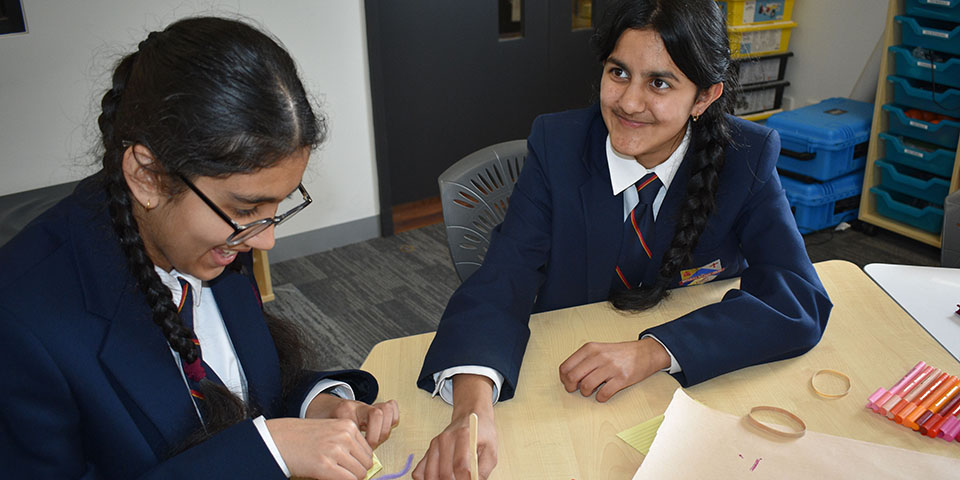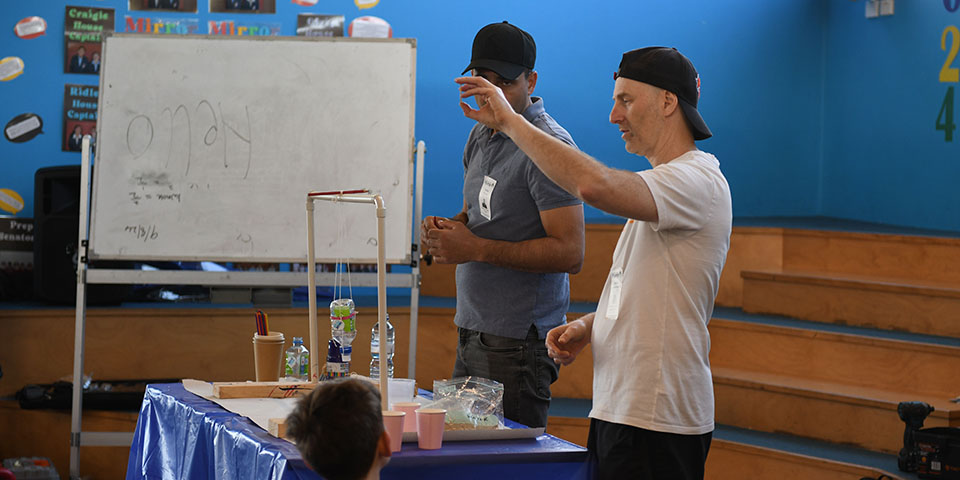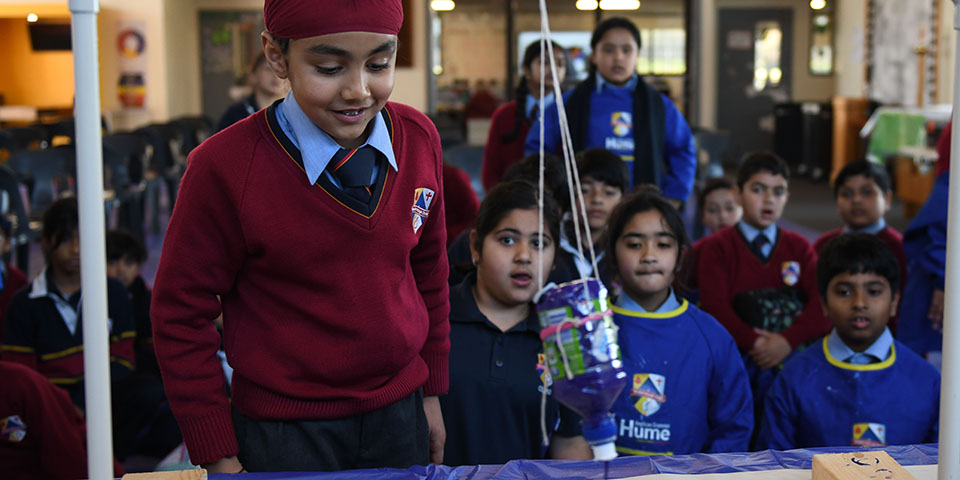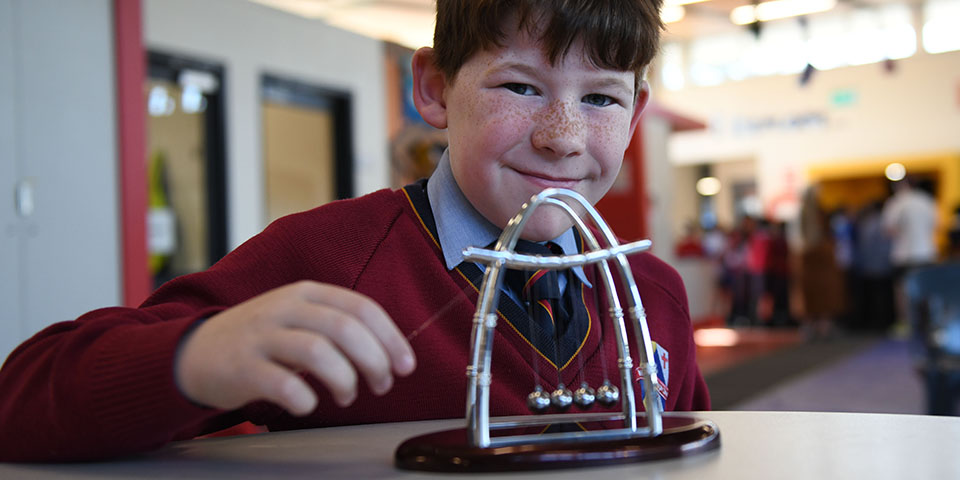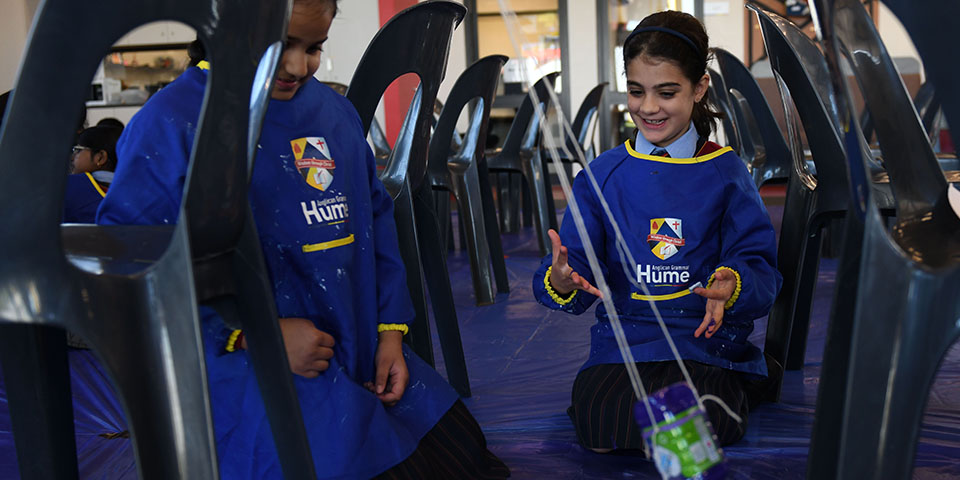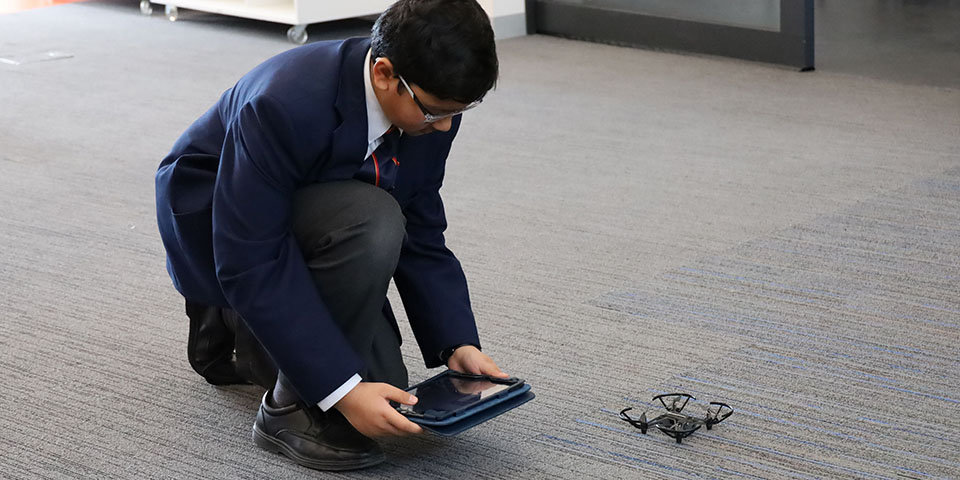All three of our campuses enjoyed STEM week recently, with a range of activities offered during and after school that focused on thinking and problem solving.
Traditionally, STEM has been used to describe a blended curriculum of knowledge and skills from Science, Technology, Engineering and Mathematics, but as global technology and networks have expanded at an ever-increasing rate, Hume Anglican Grammar has looked to prepare our students for this future fast pace changing world by developing critical thinking and problem solving skills in these subject areas. Students are encouraged to develop these skills and apply them to all areas of learning, now and in the future.
Throughout the week, students experienced a range of activities, incursions and excursions allowing them to engage and explore the many exciting opportunities STEM has to offer. There were several highlights of STEM week including the Food Drive Domino Run to support the Anglicare Winter Appeal, Family STEM Afternoon, the Science Fair, the Years 8 and 9 guest speaker and Years 4 and 5 Kalkallo students visit to Mt Ridley STEM Centre. The Donnybrook campus partnered with Anglicare Victoria for a food drive aiming to support members of our community affected by the rising cost of living. Over 450 boxes of cereal were collected, and a domino run was set up through the classrooms to celebrate.
Dr Elahe Abdi, senior lecturer at Monash University, spoke to how she designed intuitive foot pedals to control surgical instruments during surgery. The presentation ended with a Q&A session where our students and teachers posed some interesting questions.
The Family STEM Afternoon had a fantastic turn out. The afternoon began with an exciting science show. Following the show, families engaged in a variety of hands-on activities designed to challenge and inspire. The afternoon was filled with opportunities for learning and fun, making it a memorable experience.
The Year 4 and 5 Kalkallo students visited Mt Ridley campus where they teamed up with Secondary students for a unique learning experience. They were introduced to micro:bits, a pocket-sized computer that introduces children to how software and hardware work together - designed to enable engagement and creativity with technology and coding. With great enthusiasm, they coded the micro:bit to collect measurements of environmental factors such as temperature, sound level and light intensity and recorded these measurements in a data recording sheet.
We look forward to continuing this journey of thinking and problem-solving.







